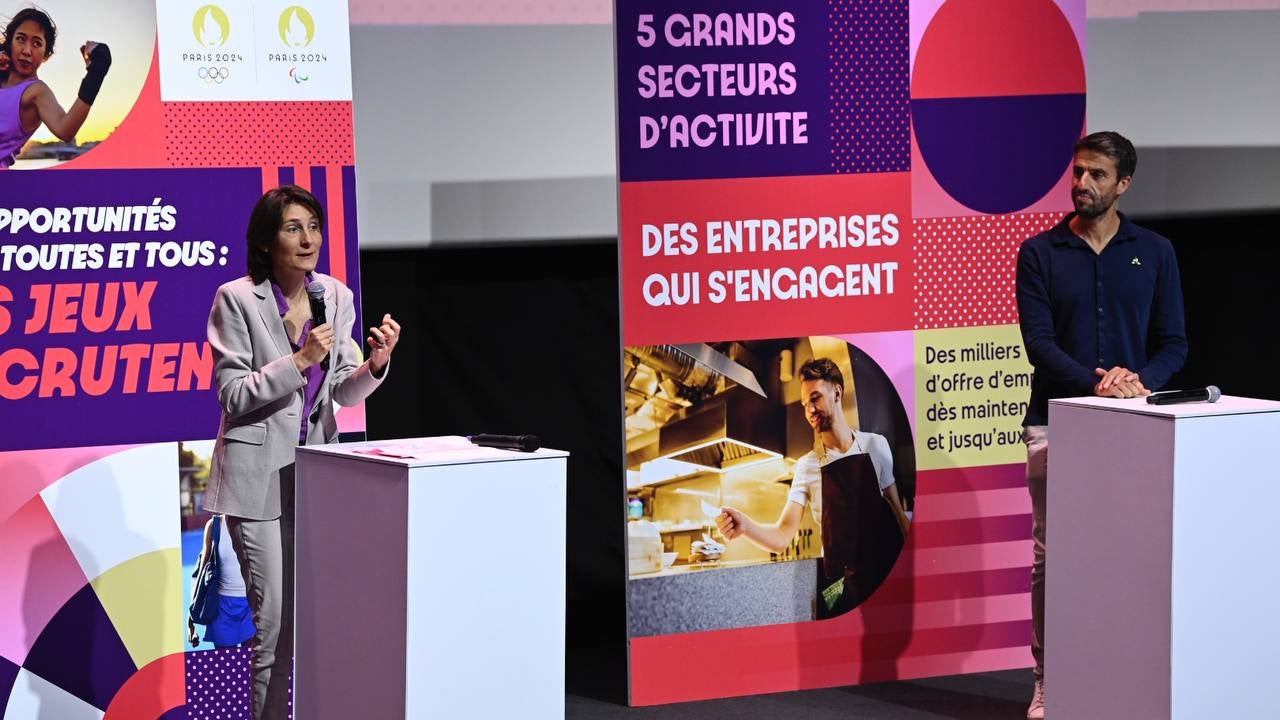
The French government prompted public outcry and criticism from the United Nations (UN) on Tuesday (September 26) when it announced that athletes representing France at the Paris 2024 Olympics would not be permitted to wear headscarves.
Marta Hurtado, a UNHCR spokesperson, stressed France’s obligation to support gender equality and human rights as a signatory to the international convention eliminating discrimination against women. “No one should impose on a woman what she needs to wear, or not wear,” said Hurtado.
In a statement, the French sport ministry said: “As such, [French athletes] may not wear a headscarf (or any other accessory or garment expressing their religious affiliation) when representing France in a national or international sporting competition.”
This preceded comments from France’s minister for sport Amélie Oudéa-Castéra who said: “The representatives of our delegations, in our French teams, will not wear the headscarf” because of the potential for “proselytising”.
The background
This controversial ban on headscarves has reignited long-lasting debates about secularism and female clothing in France.
How well do you really know your competitors?
Access the most comprehensive Company Profiles on the market, powered by GlobalData. Save hours of research. Gain competitive edge.

Thank you!
Your download email will arrive shortly
Not ready to buy yet? Download a free sample
We are confident about the unique quality of our Company Profiles. However, we want you to make the most beneficial decision for your business, so we offer a free sample that you can download by submitting the below form
By GlobalData“The government’s hard-line stance of secularism is engrained in French law,” says Jacob Kemp, analyst at GlobalData Sport. “It requires French athletes to be viewed as neutral, arguing that no one needs to know the religious background of any competing athlete.”
Following such a law so rigidly, however, has been regarded by many as interfering with an individual’s human rights. The French government’s lack of tolerance for religious diversity in sport has been repeatedly challenged by ‘Les Hijabeuses’, a group of headscarf-wearing soccer players.
Outside of sport, the government recently announced a ban on the Muslim ‘abaya’ dress in state schools, resulting in dozens of girls being sent home from school.
“A history of secularism (and a lack of available clothing options) for people of different religious backgrounds has long been a serious barrier of entry to sport, especially for women,” Kemp adds. “Dismissing religious beliefs and forcing athletes to conform to government-imposed standards impacts society far more profoundly than just at the elite Olympic level. Its repercussions filter down to grassroots sport of all types.”
What it means
The backlash following the French sport ministry’s announcement has embroiled Paris 2024 in further controversy, adding to ongoing investigations of corruption.
On June 20, police officers raided the offices of the Organising Committee for the Olympic and Paralympic Games in Saint-Denis, north-central France, on the orders of the Parquet National Financier (PNF). The financial crime investigative agency also searched the offices of Solidéo, the state-owned company contracted to build the Olympic venues.
The searches investigated possible favouritism and misappropriation of public funds in multiple contracts awarded by the Paris Bidding Committee (GIP 2024) and Organising Committee.
Also under the spotlight was the illegal conflict of interest arising from the departures of Etienne Thobois (current CEO of the organizing committee) and Edouard Donnelly (executive director of operations) from their previous sports events company Keneo, co-founded by the pair in 2008.
No official charges or convictions have been made following the office raids. But the French government’s intention to use the Olympics for national promotion has been tarnished by allegations of corruption – and now discrimination.
From raised fists at Mexico 1968 to taking a knee at Tokyo 2020, the Olympics provide a platform for athletes to raise awareness for issues that transcend sport.
Household sporting brands have attempted to instigate – or capitalize on – anti-discrimination campaigns. In 2017, NIKE released its first athletic hijab, seen by some as supporting the oppression of women in society, but welcomed by others as a step towards greater equality and diversity, albeit driven by commercial interests.
“Moroccan athlete Nauhaila Benzina became the first soccer player to wear a (Puma) hijab at the Women’s World Cup earlier this year, a move which shows the gradual advancement of religious acceptance in global sport”, says Kemp. “No matter how slow, this symbolizes some form of progress – progress which is halted and regressed by decisions such as that of the French government for its Paris 2024 athletes.”







